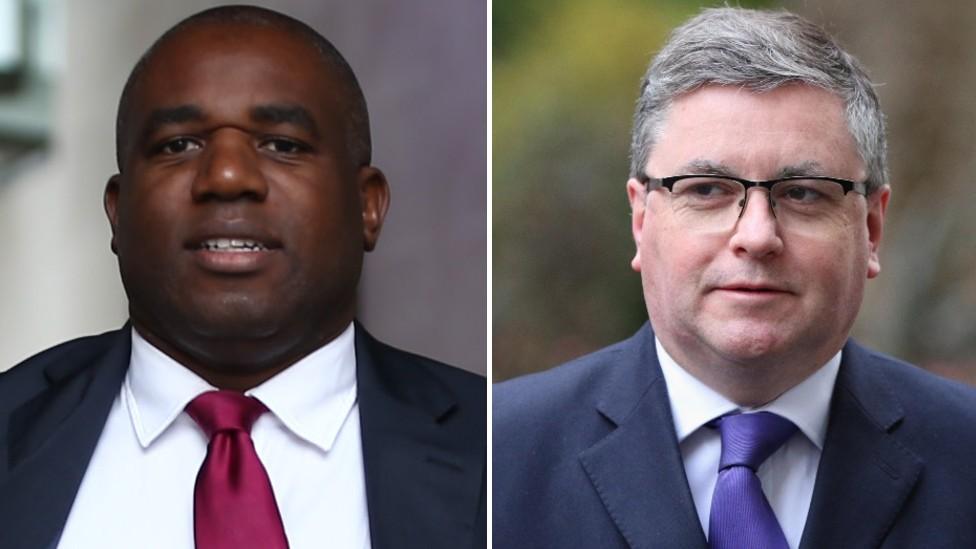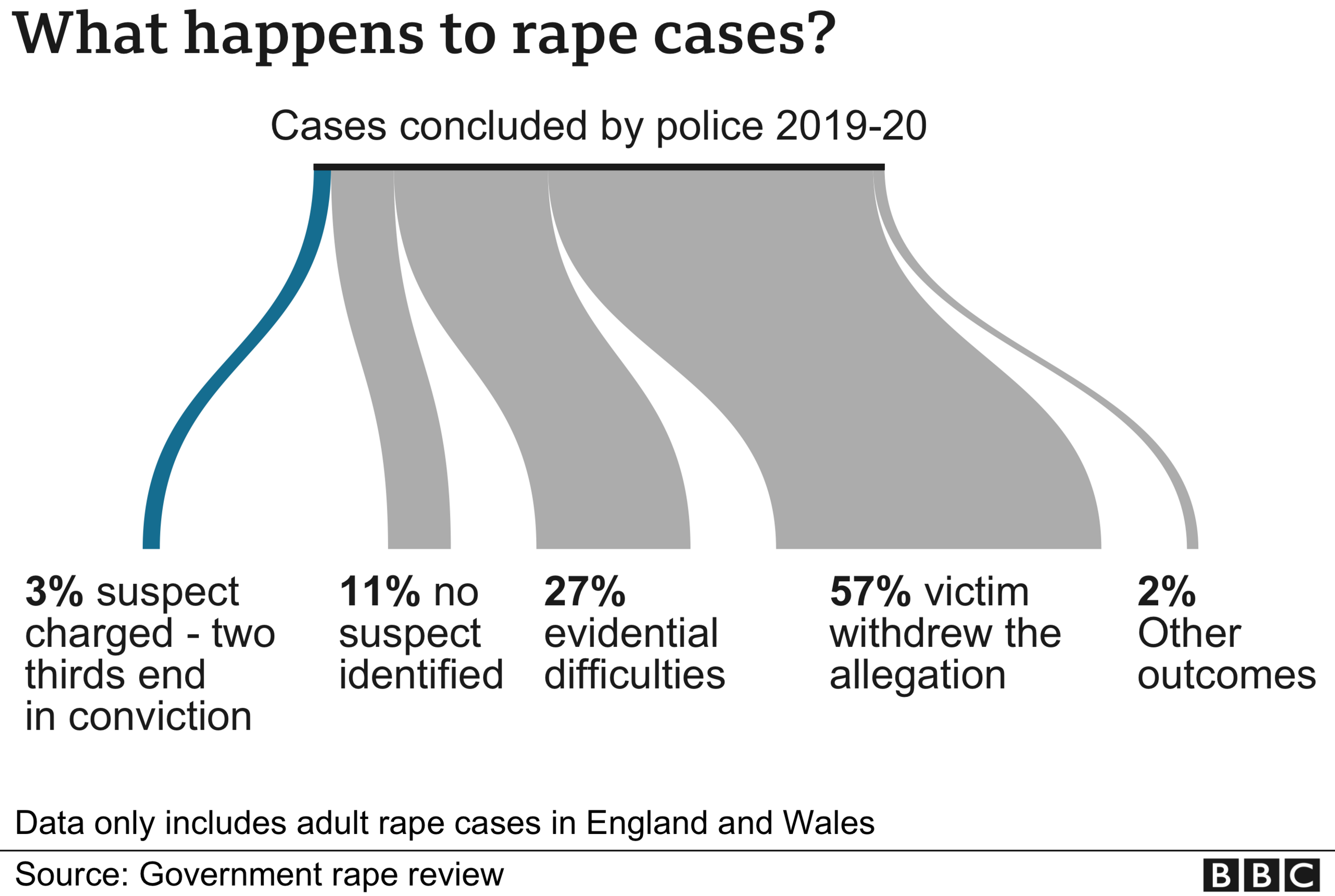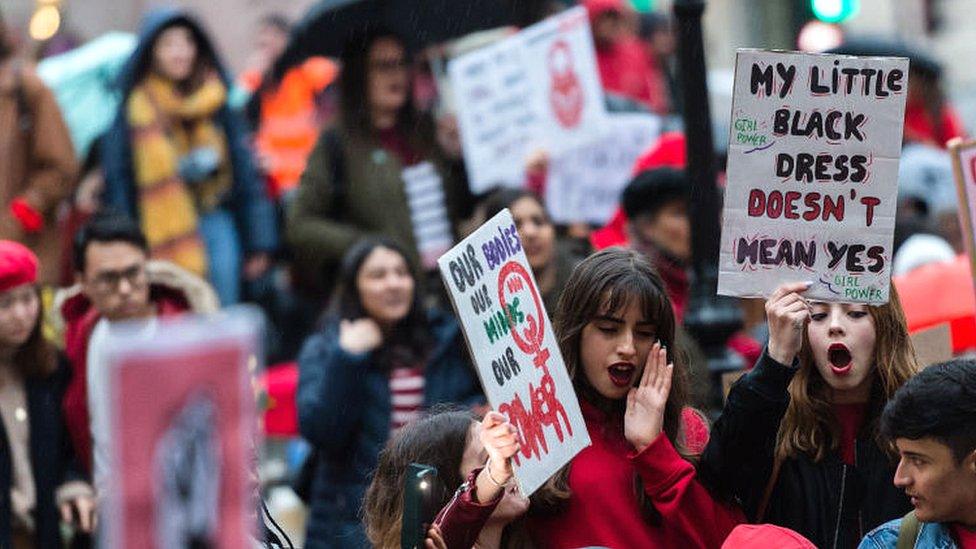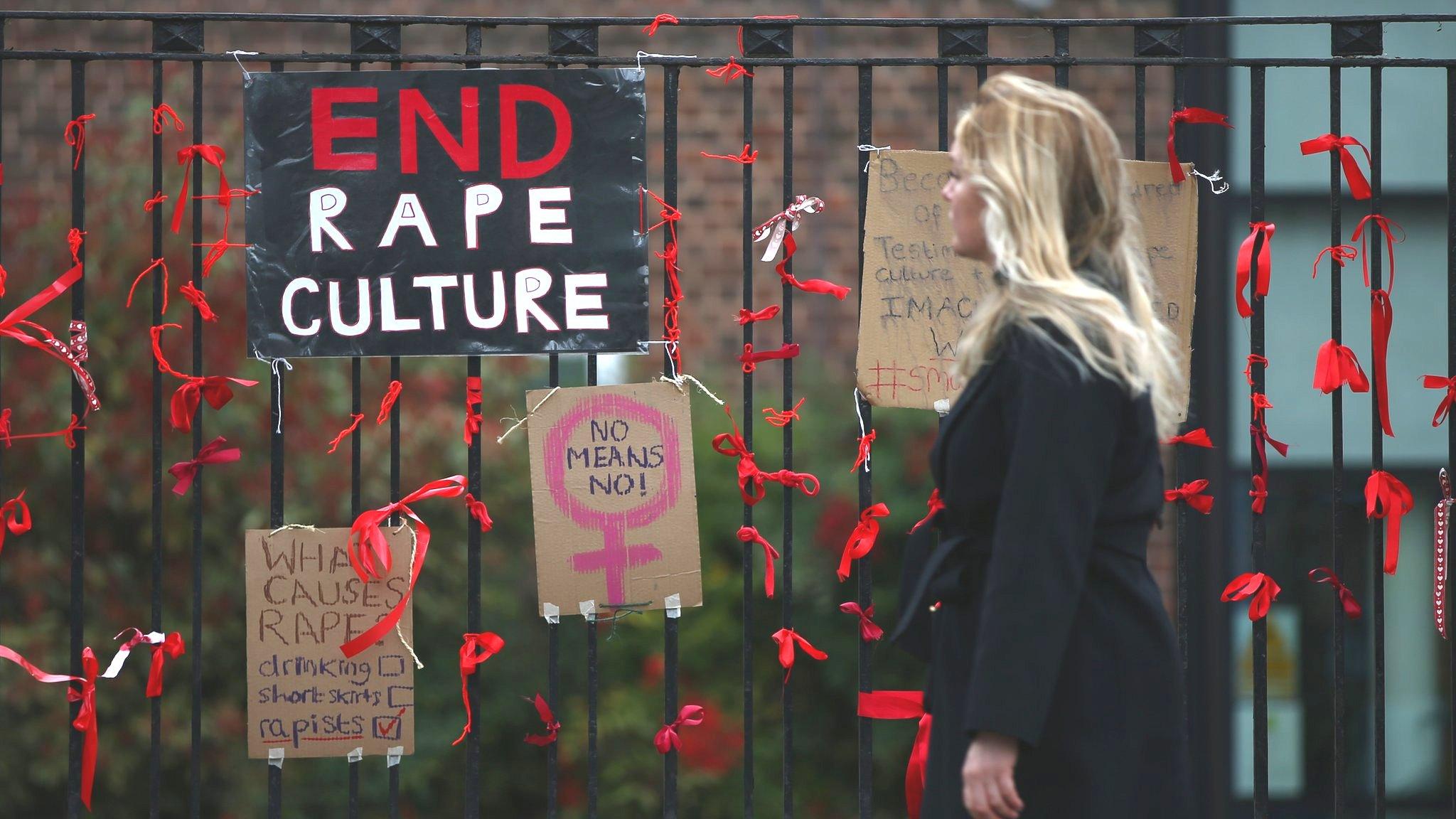Sort rape convictions or go, Labour tells Buckland
- Published

David Lammy, left, accused Robert Buckland of shedding "crocodile tears"
The justice secretary must resign if he cannot reverse low conviction rates for rape within a year, Labour has said.
Shadow justice secretary David Lammy said Robert Buckland shed "crocodile tears" when he apologised for convictions falling to a record low.
A government report this week said only 3% of reported rapes in England and Wales resulted in a prosecution in 2019-20 - down from 13% five years ago.
Mr Buckland said Mr Lammy's comments had no place in a serious debate.
The justice secretary told the BBC's Andrew Marr Show that Labour was pursuing "low politics" in challenging him to improve the conviction rates or resign.
He said: "It is constitutionally illiterate to suggest that a politician like me should in any way command and control the way that independent police and prosecutors go about their work."
Mr Buckland declined to say if he would be lobbying the Treasury for more funding to improve prosecutions, saying that while there were "pressures on the system" it was not at "breaking point".
Earlier this week, he admitted budget cuts were partly to blame and set out plans for a "system and culture change".
The justice secretary said he was "deeply ashamed" that convictions for rape and other sexual offences in England and Wales had dropped to the lowest level since records began.
Mr Lammy said: "The justice secretary's crocodile tears will mean nothing if the government fails to reverse its disastrous failure of rape victims.
"The Conservatives' decade of cuts to the justice system has let rapists and other violent criminals off the hook while denying victims justice...
"If he cannot reverse these figures within a year of his apology, the justice secretary should do the honourable thing and resign."
The latest figures from the Crown Prosecution Service show there are an estimated 128,000 victims of rape and attempted rape a year. But only 1.6% of reported cases result in a charge.
Katherine: "I feel really sad that it's taken this for them to listen"
The government's plans set out in its report include:
Videoing victim's cross-examination earlier in the process and away from the courtroom. A pilot will be trialled in several courts, with a wider rollout considered. This measure is already used for children and vulnerable victims and witnesses
Introducing better data extraction technology to reduce the time that victims are without their phones - with an aim to have them returned by police within 24 hours. Currently this process can take months causing distress for victims left phoneless at a time when they most need support from friends and family
Putting greater emphasis on understanding a suspect's behaviour rather than focusing on a victim's credibility
The report - commissioned in March 2019 - also said the volume of cases going to court should return to "at least 2016 levels" and that regular "scorecards" would be published to monitor progress.
Why are rape prosecutions falling?
There are many possible factors behind the fall in prosecutions.
The review argued it was due to "a strained relationship" between different parts of the system, lack of support for the victims and "an increase in invasive requests for their personal data".
In rape investigations, there has been an increase in the amount of evidence to consider, often from phones and social media, making them more difficult for police, prosecutors and, potentially, victims.


TOGETHER: The hilarious and heart-breaking new film starring James McAvoy and Sharon Horgan
"THERE HAVE BEEN SACRIFICES ALONG THE WAY": The quest to develop vaccines to fight the pandemic

- Published27 May 2022

- Published18 June 2021

- Published19 May 2021
